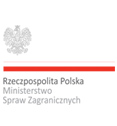ERB W POLSCE - DEFINICJE
EUROREGIONY W POLSCE UŻYTECZNE INFORMACJE I DEFINICJE
Wspólpraca ponadgraniczna
Przełom polityczno-ustrojowy w 1989 r. między państwami Europy Środkowej umożliwił nawiązywanie współpracy ponadgranicznej oraz jej instytucjonalizację.
We współpracy ponadgranicznej należy wymienić:
- współpracę transgraniczną
- współpracę euroregionalną
Współpraca transgraniczna to każde wspólne podjęte działanie mające na celu umocnienie i rozwój sąsiedzkich kontaktów między wspólnotami i władzami terytorialnymi dwóch lub większej liczby stron i jest ona pojęciem szerszym niż współpraca euroregionalna.
Euroregion to:
- zinstytucjonalizowany związek formalny, zawarty pomiędzy organizacjami państwowymi lub samorządowymi, lub nieformalny, utworzony przez stowarzyszenia zawodowe bądź naukowe dla współpracy obszarów przygranicznych,
- sformalizowana struktura współpracy transgranicznej pomiędzy regionalnymi lub lokalnymi podmiotami władzy, ewentualnie z udziałem parterów gospodarczych i socjalnych,
- porozumienie sąsiadujących regionów przygranicznych o współpracy trans-granicznej,
- lokalna instytucjonalizacja współpracy transgranicznej z pełnym uznaniem granic państwowych i praw obowiązujących w krajach uczestniczących w tworzeniu danego euroregionu,
- ponadgraniczna struktura zrzeszająca stowarzyszenia związków administracyjnych poszczególnych obszarów wchodzących w jego skład w celu wzajemnej współpracy,
- organizacja ponadgraniczna, której ramy są wyznaczone przez podobne problemy, sploty stosunków, a także gotowość do kooperacji poszczególnych jednostek i instytucji lokalnych.
Definicja euroregionu brzmi:
jest to formalna struktura współpracy transgranicznej skupiająca przedstawicieli szczebla lokalnego i regionalnego, a także w uzasadnionych przypadkach partnerów społecznych. Są to podmioty prawne, które stawiają przed sobą cele i posiadają rozległe możliwości działania.
Obszary współpracy euroregionalnej:
- tereny przygraniczne (graniczne, nadgraniczne); obszar i strefa,
- obszar pograniczny, pogranicze, obszar transgraniczny,
- region,
- region przygraniczny (graniczny, nadgraniczny),
- region transgraniczny,
- euroregion
Inne najczęściej stosowane definicje:
Teren przygraniczny - pas do 100 km od granicy
Strefa przygraniczna - pas 20-30 km od granicy
Strefa nadgraniczna - pas 2-6 km od granicy
Pas drogi koniecznej – pas 15-100 m od granicy
Obszar pograniczny, pogranicze i obszar transgraniczny - to pojęcia o zbliżonym zakresie znaczeniowym. Rozumie się go jako obszar położony w sąsiedztwie (pobliżu) granicy po obu jej stronach.
Region - rozumiany jest jako wydzielony, stosunkowo jednorodny obszar, odróżniający się od terenów przyległych cechami naturalnymi lub nabytymi.
Region przygraniczny (graniczny, nadgraniczny) to teren zlokalizowany po jednej stronie granicy.
Region transgraniczny - to teren zlokalizowany po obu stronach granicy.
Instytucje i organizacje wspierajace funkcjonowanie euroregionów:
Istotną rolę we współpracy transgranicznej na granicach Polski odgrywają:
- Instytucje i organizacje międzynarodowe, w tym Rada Europy i Unii Europejskiej,
- Międzynarodowe organizacje pozarządowe wspierane solidarnie przez Radę Europy i Unię Europejską,
- Międzyrządowe i krajowe komisje (komitety) oraz biura zajmujące się problemami tej współpracy.
Współpraca regionów przygranicznych należy od lat do priorytetów Unii Europejskiej. Komisja Wspólnot i Komisja Europejska udziela pomocy finansowej regionom przygranicznym w ramach specjalnego programu INTERREG. W 1994 roku powołano Komitet Regionów jako organ doradczy Rady Europy i Komisji Europejskiej, a jednocześnie jako przedstawicielstwo organów lokalnych i regionalnych z państw członkowskich Unii Europejskiej.
W celu zwiększenia swojej roli we współpracy europejskiej regiony utworzyły międzynarodową organizację pozarządową - Stowarzyszenie Europejskich Regionów Granicznych (SERG). Siedzibą Stowarzyszenia jest miasto Gronau w RFN.
Do zadań SERG należy w szczególności:
- Realizowanie wspólnych programów i projektów, wnioskowanie o środki finansowe, deponowanie i dysponowanie nimi,
- Organizowanie imprez związanych z problematyką współpracy transgranicznej,
- Współudział przy rozwiązywaniu problemów transgranicznych i wspieranie szczególnie ważnych, modelowych inicjatyw,
- Przygotowywanie i realizacja wspólnych akcji,
- Rozbudowa "centrum europejskich regionów granicznych i transgranicznych" w ścisłej współpracy z Unią Europejską i Radą Europy,
- Informowanie polityków i opinii publicznej w Europie o kwestiach współpracy transgranicznej,
Współpraca euroregionalna jest ważnym instrumentem tworzenia w Europie nowych stosunków międzypaństwowych i międzyregionalnych.
Podstawę nowej infrastruktury prawnej stosunków dwustronnych stanowią umowy wielostronne (międzynarodowe), w których jedną z najważniejszych zasad jest nawiązywanie i rozwój różnych form współpracy transgranicznej.
Szczególne znaczenie dla współpracy transgranicznej w polskich regionach przygranicznych mają umowy sporządzane i uchwalane przez instytucje międzynarodowe, a zwłaszcza przez Radę Europy czy Stowarzyszenia Europejskich Regionów Granicznych (SERG). Do grupy tych umów przede wszystkim należą:
- Europejska Konwencja Ramowa o współpracy transgranicznej między wspólnotami i władzami terytorialnymi z 1980 roku, nazywana w skrócie Konwencją Madrycką,
- Europejska Karta Regionów Granicznych i Transgranicznych z 1981 r.,
- Europejska Karta Samorządu Terytorialnego z 1985 r.
- Europejska Karta Samorządu Regionalnego z 1997 roku
- Europejska Konwencja Ramowa o współpracy transgranicznej między wspólnotami i władzami terytorialnymi uchwalona przez Radę Europy w 1980 roku w Madrycie.
Finansowanie współpracy euroregionalnej
Finansowanie współpracy określone jest w statutach euroregionów. Członkowie euroregionu mają obowiązek współdziałania w finansowaniu jego działalności w uzgodnionej wysokości oraz formie. Środki te gromadzone są na oddzielnych kontach i pochodzą z takich źródeł, jak:
- składki członkowskie płacone przez uczestników porozumienia euroregionalnego, składki członków wspierających, dary, itp..,
- inne źródła finansowania:
- subwencje jednostek administracyjnych wyższego szczebla, w tym środki regionalne i centralne (np. przy opłacaniu składek członkowskich w SERG),
- środki programów pomocowych Unii Europejskiej
ERB IN POLAND - DEFINITIONS
EUROREGIONS IN POLAND - USEFUL INFORMATIONs AND DEFINITIONS
Politico-constitutional breakthroughin 1989 between the countries of Central Europe has enabled the establishment of cross-border cooperation and its institutionalization.
Cross-border cooperation include:
- Cross-border cooperation
- Euro-regional cooperation
Cross-border cooperation is any common action designed to reinforce and foster neighborly relations between territorial communities or authorities of two or more sides, and it is a broader concept than Euroregional cooperation.
EUROREGION :
- formal institutionalized relationship, concluded between state organizations or local governments, or informal cooperation, created by professional or scientific associations in border areas,
- formalized structure of cross-border cooperation between regional or local bodies of power, possibly involving economic and social partners,
- agreement beetwen neighboring border regions on cross-border cooperation,
- local institutionalization of cross-border cooperation with the full recognition of national borders and laws of the countries participating in the creation of the Euroregion,
- cross-border structure bringing together the association relationships of each administrative areas of its component for mutual cooperation,
- organization of cross-border, which frames are designated by similar problems, weave relations and the willingness to cooperate individuals and local institutions.
Definition of Euroregion:
This is the formal structure of cross-border cooperation bringing together representatives of the local and regional level, and in appropriate cases the social partners. These are legal entities who set themselves goals and have vast possibilities of action.
Areas of cooperation euroregional:
- border areas (border, a border); area and zone
- a border area, borderland, cross-border area,
- region,
- border region (border, frontier)
- cross-border region,
- Euroregion
Usefull definitions:
Border area - area up to 100 km from the border
Border area - area 20-30 km from the border
Frontier zone - area 2-6 km from the border
Necessary road area - belt 15-100 m from the border
Area frontier, the frontier and cross-border area - this idea of a similar range of meaning. It is understood as an area located in the neighborhood (nearby) border on both sides.
Region - is understood as a separate, relatively homogeneous area distinctive from adjacent areas of natural or acquired traits.
Border region (border, frontier) is an area located on one side of the border.
Cross-border region - is an area located on both sides of the border.
INSTITUTIONS AND ORGANIZATIONS SUPPORT OPERATION EUROREGIONS
An important role in cross-border cooperation on the borders of Polish play:
- Institutions and international organizations, including the Council of Europe and the European Union,
- International non-governmental organizations supported jointly by the Council of Europe and the European Union,
- Intergovernmental and national committees (committees) and the offices dealing with the problems of this cooperation.
Cooperation in border regions should be the years of the priorities of the European Union. Communities Commission and the European Commission provides financial assistance to border regions in the framework of a special program INTERREG. In 1994, he established the Committee of the Regions as an advisory body of the Council of Europe and the European Commission, and at the same time as the representative of local and regional authorities of the Member States of the European Union.
In order to increase its role in European cooperation regions have formed an international non-governmental organization - Association of European Border Regions (AEBR). The seat of the Association is the town of Gronau in Germany.
The tasks of AEBR in particular:
- Implementation of joint programs and projects applying for funds, deposit and disposal of them,
- Organization of events relating to the issue of cross-border cooperation,
- Participation in solving cross-border problems and support particularly important, model initiatives,
- Preparation and implementation of joint action,
- Expansion of the "center of European border regions" in close cooperation with the European Union and the Council of Europe,
- Informing politicians and public opinion in Europe on the issues of cross-border cooperation,
Euroregional cooperation is an important instrument to create in Europe a new relationship interstate and interregional.
The basis of the new legal infrastructure of bilateral relations are the multilateral agreements (international), in which one of the most important rules is to establish and develop various forms of cross-border cooperation.
Of particular importance for cross-border cooperation in the Polish border regions have contracts drawn up and adopted by the international institutions, especially the Council of Europe and the Association of European Border Regions (AEBR). The group of these contracts primarily include:
- The European Framework Convention on Transfrontier Cooperation between Territorial Communities or Authorities of 1980, known as the Madrid Convention in brief,
- The European Charter for Border and Cross-Border Regions 1981.,
- The European Charter of Local Self-Government of 1985.
- European Charter of Regional Self-Government, 1997
- The European Framework Convention on Transfrontier Cooperation between Territorial Communities or Authorities adopted by the Council of Europe in 1980 in Madrid.
Financing cooperation euroregional
Financing cooperation is defined in the statutes of Euroregions. Members of the Euroregion are obliged to contribute to the financing of its activities in the agreed amount and form. These measures are collected on separate accounts and come from sources such as:
- membership fees paid by the participants of the agreement euroregional supporting members, donations, gifts, etc ..
- other sources of funding:
- subsidies higher level administration units, including the regional and central (eg. when paying membership fees SERG)
- aid funds from the European Union
 KALENDARZ WYDARZEŃ
KALENDARZ WYDARZEŃ
Przejdź na podstronę ze szczegółowymi informacjami. »
| Luty 2026 | ||||||
| 1 | ||||||
| 2 | 3 | 4 | 5 | 6 | 7 | 8 |
| 9 | 10 | 11 | 12 | 13 | 14 | 15 |
| 16 | 17 | 18 | 19 | 20 | 21 | 22 |
| 23 | 24 | 25 | 26 | 27 | 28 | 1 |
2 | 3 | 4 | 5 | 6 | 7 | 8 |
 NEWSLETTER
NEWSLETTER

Strona wyraża jedynie poglądy autorów i nie może być utożsamiana z oficjalnym stanowiskiem Ministerstwa Spraw Zagranicznych RP







